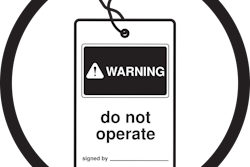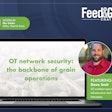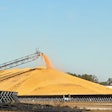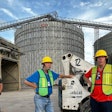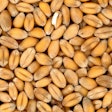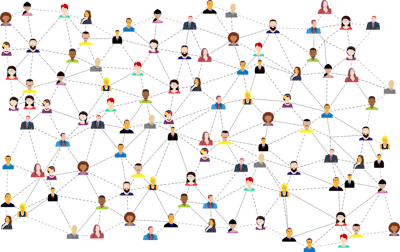
All of us have people we go to for suggestions and ideas, run our thoughts past, and seek their advice and critiques on our actions. Many of these are just informal contacts and relationships. But as a manager at a feed or grain business, there may be value in being deliberate about building such a network, even if it’s informal.
One question is who to include? Some issues and problems are unique to the industry, suggesting other feed or grain managers’ inclusion. There are also some challenges, however, which all businesses face — whether they be financial, human-resource-related, marketing or transportation — that suggest a more expansive view of your network is in order.
Internal input
Listening to your direct reports and other employees is vital. An essential component of successful management is intentional listening. Intentional listening involves listening to their concerns, ideas and the challenges they are facing. But it also means being intentional about learning what they know about your customers, competitors, new developments in the industry, things they are concerned about for your business and opportunities they see.
Managers have different ways of accomplishing such information gathering. Try holding a weekly meeting with direct reports — involve your agenda but also include a round-robin of your direct reports where they have an opportunity to share updates and put problems “on the table” to seek discussion and input. Take this round-robin session seriously — it may well be the most important part of the meeting, make sure employees know their insights are valued.
Such a meeting should not replace informal, one-on-one sessions with these critical employees, where the focus should be on listening to them. The most important point: ask your direct reports and employees questions that help you learn what they know. Such questions also empower and support them with their responsibilities.
Input from your customers and others
Your customer base is a pivotal group to listen to and can provide another source of valuable input. Customer surveys (online, mailed or placed into monthly billing statements for return) are one way of gathering useful feedback. Another way is to organize somewhat formal customer panels.
Perhaps offer lunch to a small group in exchange for sharing their thoughts to a list of questions and the opportunity for unscripted input. Another approach is to put together a Customer Advisory Board made up of customers from your business. Such a group may give you different, perhaps more candid, input from the general advisory board outlined below. Less formally, you may have two to three critical customers with a strong, trusted relationship to bounce ideas off. Sometimes, you need quick and unfiltered feedback on an idea and a quick call to a customer you have such a trusted relationship with may do the trick.
Advisory board
Another powerful method of collecting meaningful input and advice is to convene an external advisory board, including a supplier or two and others interested in your business, such as your accountant, a local political leader, another local business owner, etc. This group can serve as an impartial arbiter or generator of outside-the-box thinking because they don’t have to deal with the same day-to-day challenges you do.
Networking
Networking is an area that is likely understated as a management best practice. To build a network takes time and effort, and some might say that it comes naturally with age and experience. We would argue, however, that you can intentionally do things to build and strengthen your network. But first, why network?
A well-developed professional network made up of highly skilled individuals in their areas of expertise is a pool of talent that you can use when looking for employees for your feed or grain business — either themselves or helping point you to talent. More importantly, a network is an important leadership asset. You can use this network to gain access to resources and know-how that can be critical in your role as a leader and manager.
Networking helps you keep abreast of what is happening in your industry and, more broadly, business and commerce. Here, a key caveat is to add “hybrid vigor” to your network by networking with people both within and outside the feed or grain industry.
Harvard Business School professor Anthony Mayo states in his online course Leadership Principles, that, “if you have a very large network in which everyone knows each other, you essentially have access to the same, recycled information. It’s more important for your network to provide new resources and have strong relationships that rest on a willingness to help each other.”
Tim Stobierski, a contributing writer for Harvard Business School Online, notes building a robust network of external connections starts with leveraging professional associations, conferences and events. Meeting people, talking about mutual interests, and sharing business cards are ways of building this network. Additionally, speaking at an event or participating in a roundtable generates visibility for yourself and your feed or grain business, providing additional networking opportunities. He further recommends becoming a mentor, either for someone from within your company or outside of it.
“Mentorship requires the mentor to reflect upon their career to guide the mentee — a useful exercise, especially for those not accustomed to doing so,” says Stobierski. The mentor-mentee relationship is a powerful one, which, when properly maintained, can last for decades and build both party’s networks.
A peer or several peers within the feed and grain industries (recommended to be outside of your market area to avoid any potential anti-trust/competition issues) can also be valuable as a sounding board/listening partner.
While these sorts of contacts don’t provide the hybrid vigor mentioned above, they offer you experts who know your industry well and don’t have to learn the lingo such as bushels of storage capacity and average daily gain for livestock feed products.
This networking can occur when you meet people at conferences or supplier meetings, or contact regional state feed or grain associations and ask them for names you could reach out to in order to form your group with whom to converse.
Another great networking opportunity is the executive forum type networking group often provided by a consultant for the express purpose of sharing experiences and exchanging ideas. These sorts of programs will have an attendant cost, but the ideas generated and shared camaraderie can be well worth it.
One important point, for any of these networks to be effective, they must be cultivated. A network is not a list of names — it is a group of trusted advisors/confidants with whom you work deliberately to build a mutually beneficial relationship. It is a cliché, but what you get from your network will depend on the investment you put into it.
Expand your circle
Use these thought-provoking suggestions to be strategic in developing a set of information sources to manage your firm.
There is a lot of pressure on anyone in a feed or grain management role. Your group of information sources and network can help ensure you are making the most fully informed decisions possible to benefit you as a manager and improve your bottom line.


